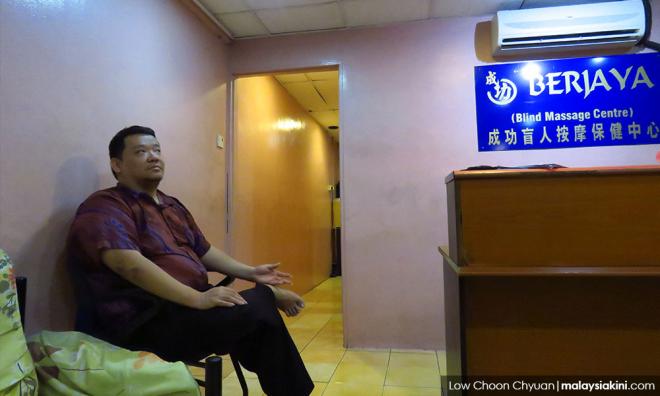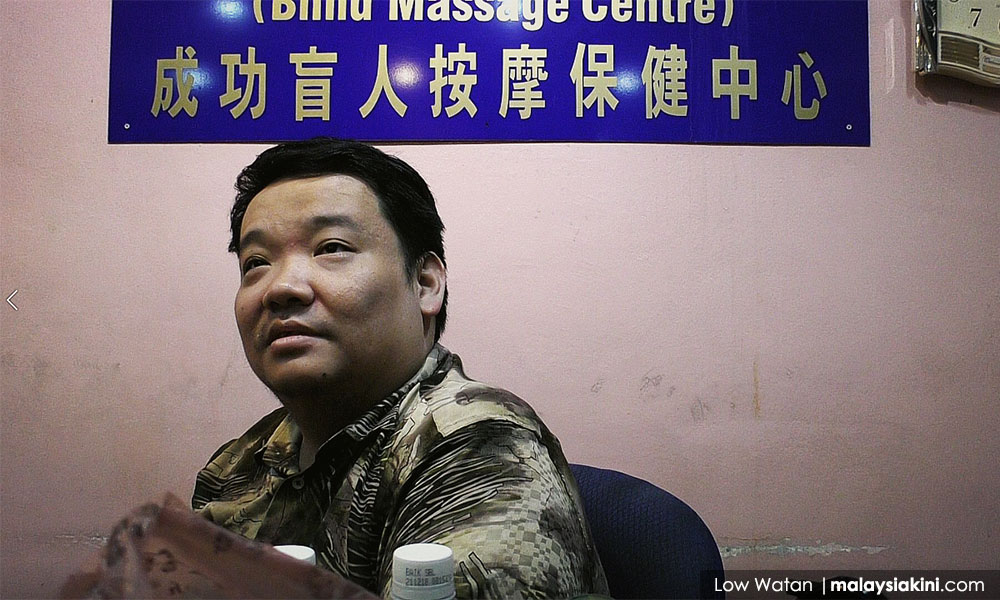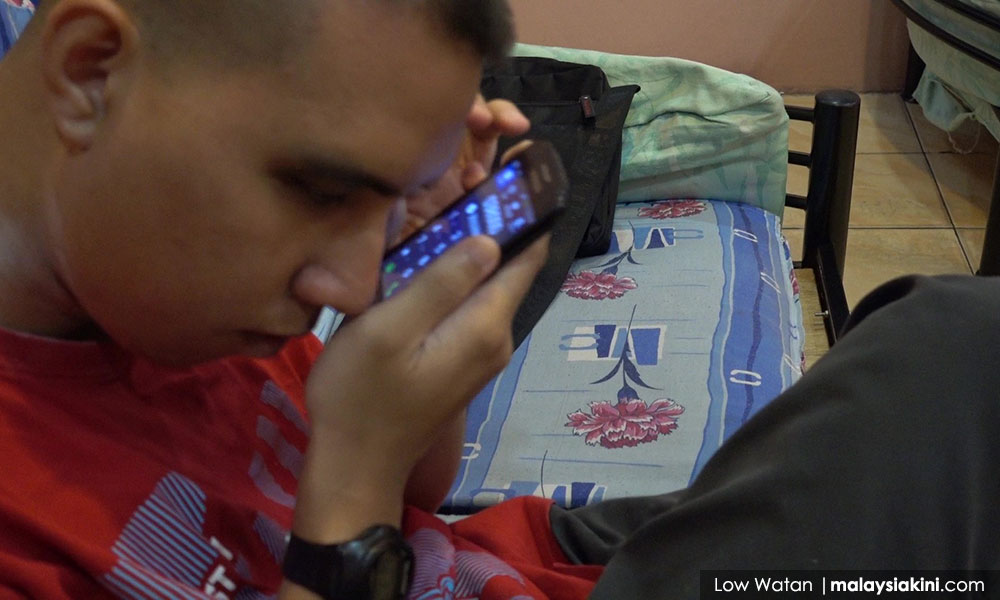
CORONAVIRUS | On the first day of the movement control order, the Brickfields area was unusually quiet and empty.
But the otherwise still surroundings broke as a blind massage centre owner, Kent Yam, switched on the radio for the prime minister’s speech, which was due to start at 8pm.
“I don’t know what he is going to announce, don’t know how many new cases today,” he mumbled.
A visually impaired individual, Yam listens to both the radio and TV to get updates on the Covid-19 pandemic.
As the confirmed cases of Covid-19 in Malaysia rose rapidly, Yam’s concern in relation to the health status of customers similarly grew.
He was worried that his visually impaired masseurs might be unknowingly infected after touching customers.
“When our masseurs were massaging customers, they kept chatting for close to an hour for each session and they did not wear masks.”
Yam told Malaysiakini that he would get all his masseurs to wear masks when they resume their work after the movement control order ends.
But although the government has assured there is enough supply of masks, Yam said he has failed to find any.
After the MCO was announced, Yam initially wanted his centre to remain open for regular customers but later decided against it due to the risk of his employees contracting the virus.
“But not being able to work for two weeks is hard for us. We need to eat, we need to pay rent,” he lamented.
HR Ministry not protecting the self-employed
Jackson Teo is one of many other masseurs who are affected by the MCO. Teo told Malaysiakini he has to “count each and every cent” to survive the two weeks.
He said while smiling wryly: “I cannot be choosy to eat and I have to be frugal.”
Many of the visually impaired have made Brickfields their home. Some work as masseurs, while others sell tissues or busk for a living.
Although the Human Resources Ministry had confirmed employees are entitled to their salaries throughout the MCO, Teo pointed out how he and others who are self-employed are not covered under this.
Teo said masseurs are categorised as “self-employed” as they are not hired by massage centres directly.
Instead, they get paid per session and have to split the amount with the massage centre’s owner.
“We do not have a basic salary and we only get salary for the day.
“So I don’t think it is possible for our boss to pay for our salary for these two weeks.”
Exposed to the risk of contracting the virus
Yam wears a mask when he goes out and washes his hands frequently. But he is still worried of contracting the virus.
This is because the visually impaired rely on their sense of touch to obtain information from their surroundings.
By touching more items, they are more exposed to a higher risk of infection than a sighted person.
“This pandemic is frightening! You guys (sighted people) can see but when we go out, our hands have to touch many things.
“Because we can’t see, we have to touch the elevator’s buttons and its handles. You don’t have to touch them but we have to!”

The visually impaired need assistance to cope during MCO
Yam stressed the need for the visually impaired to get assistance from others.
But due to the lack of assistance from the Social Welfare Department as well as NGOs, the visually impaired have to either rely on their friends and relatives or have to be forced to do things by themselves.
Teo, too, lamented the lack of social welfare or charity groups who are assisting the visually impaired, especially in such a trying time like this.
“For the visually impaired especially those from the B40 community, it is better to have social welfare groups to help them cope during the two weeks.”
The visually impaired were particularly helpless when faced with the shortage of face masks and hand sanitisers, he added.
Information on virus prevention does not take into account the visually impaired
Other than material needs, Teo also shared that information on prevention against the virus does not take the visually impaired into account.
Although it is shown on TV how a mask can be properly worn, a visually impaired person is not taught to identify the front side or the opposite side of a mask.

Such crucial information can only be taught by a person demonstrating it personally to a visually impaired individual.
“Someone has to hold our hand and teach us how to distinguish the different sides and how to put a mask on.”
Last October, former deputy prime minister Dr Wan Azizah Wan Ismail revealed that the Social Welfare Department was facing a shortage of social workers and as a result, the government’s hands were tied in dealing with social problems.
A report found that the ratio of social workers among Malaysians are very low (1:8,576), compared to the US (1:490), Australia (1:1,040) and Singapore (1:3,448).
In January, the Women, Family and Community Development Ministry announced that it has set up the Malaysian Social Work Profession Council and has also formulated a bill to recognise social work as a profession.
However, the fate of the bill is unclear due to the new Perikatan Nasional government which had taken over power from the Pakatan Harapan government last month. - Mkini


No comments:
Post a Comment
Note: Only a member of this blog may post a comment.